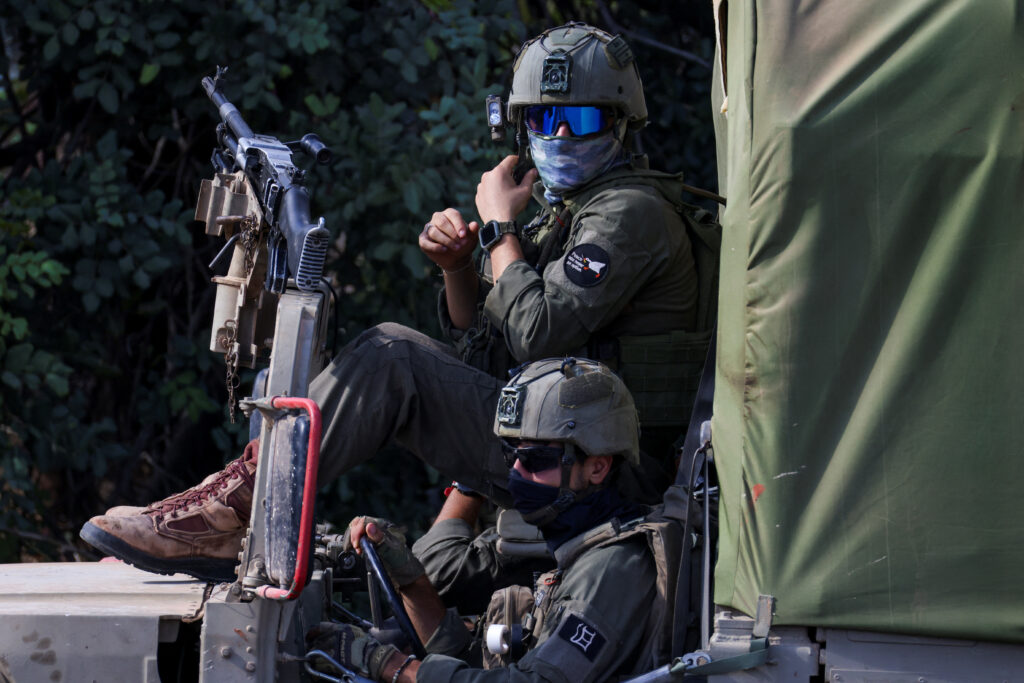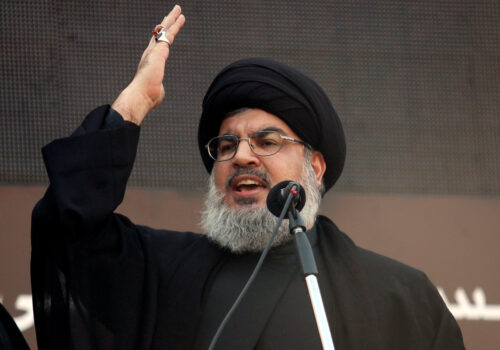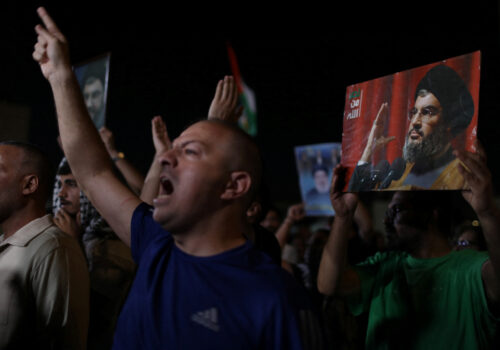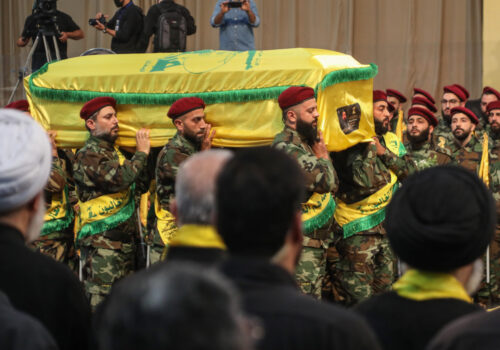Early on Tuesday, Israel announced that it was launching a “limited” ground incursion into Lebanon. This follows Israeli airstrikes on Hezbollah targets, including in Beirut, where Hezbollah leader Hassan Nasrallah was killed on Friday. Nearly a year into the conflict that began with the Hamas terror attack of October 7, 2023, Israel has revised its war aims to secure the return to northern Israel of tens of thousands of Israelis who fled rocket fire from Hezbollah. To answer our big questions about this new Israeli military campaign, we turned to Shalom Lipner, a Jerusalem-based nonresident senior fellow with the Atlantic Council’s Middle East Programs and a former advisor to seven consecutive Israeli prime ministers.
1. How does this Lebanon campaign differ from past Israeli operations?
Context makes Israel’s latest offensive in Lebanon unique from previous forays in that theater of operations. One year into its Gaza campaign, the Israeli military is moving up the Iranian food chain, now focusing its energies on Hezbollah—a more intimate and ferocious client of Tehran than Hamas—while signaling, in Yemen and other places, that it expects to continue pushing back forcefully against all adversaries (and their sponsors). The methodical approach that Israel has employed thus far opposite Hezbollah, surgically decapitating its leadership before inserting Israel Defense Forces (IDF) boots into the battlefield, speaks to the fact that Hezbollah is an enemy that the IDF has long been preparing to face, and also stands in stark contrast to its undisciplined response after the rude surprise of October 7.
2. Will Israel be able to sustain the advantage it has had so far in its air campaign?
Israelis are hopeful that their tides may have turned finally, but their infantrymen should anticipate encountering more resistance than their pilots have. A positive outcome to this gamble is far from guaranteed. The “we’re not going to take it anymore” strategy of the Netanyahu government—which insists that it is “winning”—aspires to fundamentally shift the regional balance of power in Israel’s favor, but its obvious risk is the accompanying potential for a punishing, full-scale war in the Middle East.
3. What should the US government do now?
The Biden administration has remained broadly supportive of Israel’s objectives. Secretary of Defense Lloyd Austin acknowledged, as the formal IDF ground incursion into Lebanon commenced, the imperative of “dismantling attack infrastructure along the border to ensure that Lebanese Hizballah cannot conduct October 7-style attacks on Israel’s northern communities.” Given those sentiments, US principals should continue engaging with Israel to ensure that this task is accomplished clinically and swiftly, and with other actors to contain a possible escalation that would certainly undermine the administration’s goal of a ceasefire.
4. What does this ground campaign mean for regional normalization efforts?
Israel’s integration into the region was facilitated by, among other factors, its close friendship with the United States—which has been an enabler of Israeli security and prosperity—and the desire of other countries in the region to join that exclusive club. Accordingly, if Israel can emerge from its current predicament and restore itself to full military and economic health, and if it proves sufficiently adept at keeping its alliance with Washington intact, there is every reason to believe that the upward trajectory of normalization will resume.
Further reading
Sat, Sep 28, 2024
Experts react: Hassan Nasrallah is dead. What’s next for Hezbollah, Israel, and Iran?
New Atlanticist By
On Saturday, Hezbollah confirmed that its leader had been killed in an Israeli air strike. Atlantic Council experts share their insights on what might come next for the already war-torn region.
Sun, Sep 29, 2024
After Nasrallah, three quandaries shape the future of the war—and the Middle East
New Atlanticist By Jonathan Panikoff
Hassan Nasrallah’s death creates interrelated quandaries for Hezbollah, Iran, and Israel that will determine if the region erupts in conflict and shape what it looks like for years to come.
Sat, Sep 28, 2024
Hezbollah is diminished, decapitated, and in disarray—but still dangerous
New Atlanticist By William F. Wechsler
The death of Hassan Nasrallah leaves Hezbollah weakened, but as Israel’s history with the Iran-backed group demonstrates, decapitation operations are often necessary to win the battle but always far from sufficient to win the peace.
Image: Israeli soldiers ready their kit, amid cross-border hostilities between Hezbollah and Israel, in northern Israel October 1, 2024. REUTERS/Jim Urquhart



